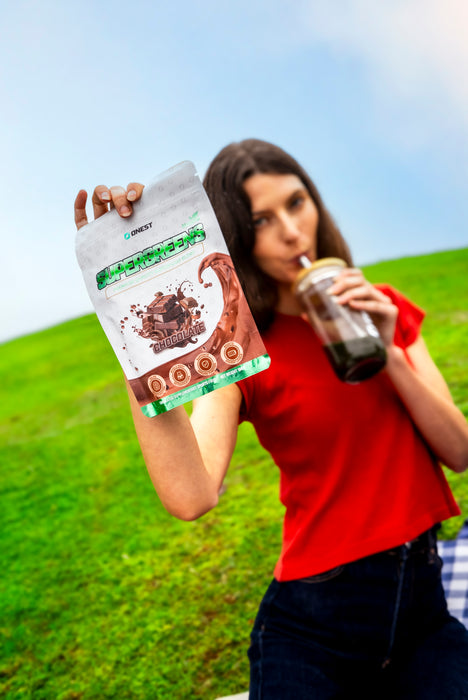5 PROVEN WAYS TO PROTECT FROM & HEAL DIGESTIVE PROBLEMS
Do you regularly suffer from an upset stomach?
Are you often bloated? Or find yourself painfully trying to hold in embarrassing wind?
Maybe a range of foods trigger illness or discomfort?
You might even experience strange symptoms that seem unrelated to your gut; brain fog, headaches, fatigue, cravings, joint pain, skin rashes or mental illness?
Your digestive tract is the entry and exit point for food, fluid and foreign invaders. It is intimately involved in the breakdown and absorption of nutrients and energy production. Your digestive lining protects against harmful compounds that can cause inflammation and resultant insulin sensitivity. However, when function goes awry, signs and symptoms can be exhausting, painful and non-stop.
Yet the right approaches can heal your digestive tract and massively boost your health.
Here are our top five science-backed tips for a healthy gut…
Exercise regularly
Within your gut live billions of bacteria, viruses and fungi. Together, they form what is called the microbiome. Many of these bugs are helpful and healthful, yet some strains are harmful and opportunistic. A beneficial balance is essential for your wellbeing.
So, if you experience gut problems, there is a good chance your digestive equilibrium is off-kilter.
Yet, being physically active appears helpful in reseting stability.
A 2017 study found that there is a “higher abundance of health-promoting bacterial species in active women.” This also correlated to body fat percentage and muscle mass. Being physically active positively alters the microbiome and contributes to ideal body proportion in ways not linked to the “calories in, calories out” mantra.
And if you are not yet active? Exercise strengthens the diversity of the gut microflora. It’s time to begin to move and often.
Additionally, low intensity exercise reduces transient time through the gut. This decreases pathogenic contact with the digestive lining. This has benefits for your digestive health, now and into the future.
Manage Your Stress
Have you ever noticed that when you feel stressed and tense, a knot develops in your stomach or you develop diarrhea or constipation? Maybe your abdomen cramps or you feel sick?
Your digestive system is intricately linked to your psychological state. This makes managing stress crucial for healthy gut function.
How can you better manage your stress?
Understand Your Triggers
What triggers others might not affect you, and vice versa. By knowing where your challenges lie you can take steps to prevent or alleviate their impact.
Learn to identify your signals
Do you notice stress building because you start to feel overwhelmed? Or is irritability your indicator? Maybe a headache kicks in, or your gut begins to tighten.
Once you become aware that tension is setting in, pause. Then take a step towards a tranquil activity or thought.
Implement calming steps
There are many ways to promote calm. Establish those that work for you as your go-to options. Examples might include:
- Slow, conscious breaths
- Meditation
- Mindfulness
- A short walk
- A cup of Chamomile tea
- Put pen to paper to expel your frustration
- Give someone a hug
- Visualize yourself on a beach or in the mountains. Use your five senses to heighten the experience.
Avoid Foods That Trigger Symptoms
Given consumed foods need to pass through your digestive tract, it makes sense that irritating choices, well, irritate!
Commonly reported triggering food and drink includes alcohol, caffeine, dairy, fatty and fried foods, sugar, and wheat. Sometimes it’s the chemicals the food comes in contact with through growth, processing or storage that cause or exacerbate symptoms. (Organic is therefore ideal)
While you may imagine you ought to know the foods that worsen your tummy trouble, many people don’t. Keeping a food and symptom diary can help.
Note down symptoms and when they occur. Also record what foods and drinks you consume and when. You will begin to identify patterns. Note-taking will allow you to also change your diet and notice whether your signs and symptoms alter or abate.
Consume Adequate Fiber
We often hear about the next best superfood or a “life-changing” hack. But as we get caught up in the latest trend, it’s easy to forget about this essential basic.
Fiber is defined by the Institute of Medicine Food Nutrition Board as “non-digestible carbohydrates and lignin that are intrinsic and intact in plants.” Depending on the type of fibre, there are two purposes. Firstly, to provide the bulk that eases stool passage through the gut. Secondly, to be digested by the gut bacteria; to act as food for the microbiome.
People who consume adequate fiber not only have better digestive health, they face a reduced risk of cancer, cardiovascular disease, and type 2 diabetes. As an added benefit, high fiber intake is also linked with lower body weight.
According to the article, Position of the Academy of Nutrition and Dietetics: Health Implications of Dietary Fiber, the average adult female requires 25 grams daily and the average male adult needs 38 grams per day.
Herein lies a problem: The average intake in America is only 17 grams per day, with a mere one in 20 people meeting the adequate intake (AI).
There’s a good chance, then, that you are not consuming sufficient fiber. Insufficiency invariably delivers health consequences. To raise your intake consume foods like legumes, nuts, fruits and vegetables, and whole grains. Supplementation can also ensure sufficiency.
Supplement With SuperGreens
To function well, your gut must remain nourished. This requires adequate nutrition including vitamins and minerals.
However, as an article on Oregon State University’s website pointed out, “Many Americans are exceeding energy (caloric) needs but not meeting micronutrient (vitamin and nutritionally essential mineral) requirements.”
As we saw earlier, research shows that many people also struggle to consume the fiber they need.
Without nutritional sufficiency, gut health and healing is impossible. But eating sufficient fruits and vegetables can be challenging.
That’s why SuperGreens packs a health-filled (gentle) punch.
By combining an organic blend of health-promoting plant foods, you substantially increase your intake of digestive enzymes plus critical nutrients including vitamins, minerals and fiber.
Our SuperGreens blend includes:
- Organic grass and greens
- Organic cruciferous mix
- Organic carotenoid-rich vegetable mix
- Organic sprouts and sea vegetable mix
- Enzyme blend
- Organic fruit and vegetable mix
It’s one of our customer favorites. As Roberto S. said, “You can feel the benefit right away! Helps my digestive system and chocolate taste really good, with collagen is the best!”
Simply mix one scoop with six to eight ounces of water and consume once or twice each day.
The Takeaway
It can feel like digestive problems may last a lifetime. So many people — maybe you — struggle to find relief…
But with the right approaches, respite and relief is possible.
Regular exercise, stress management, avoiding foods that trigger symptoms, and a focus on consuming adequate fiber and nutrients matter. If you’re ready to quell digestive upset and ease your signs and symptoms, it’s time.
It is entirely possible to experience freedom from tummy troubles. We look forward to hearing your success story!






